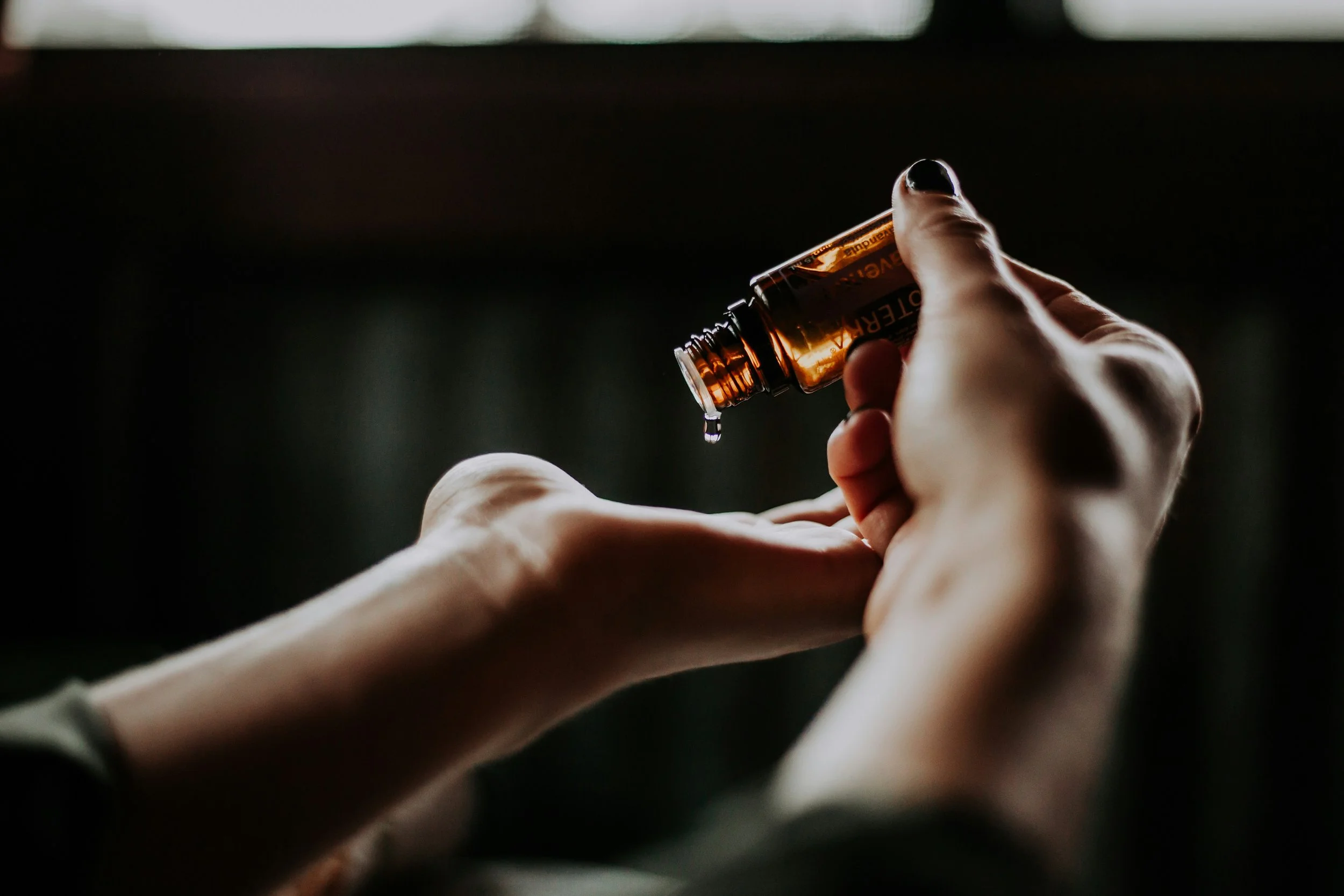Patchouli and Cilantro: Owning My Scent, Owning My Space
One of our employees came back from lunch, waved his hand through the air, and asked, “Are you doing some of your juju stuff?” I gave him a confused look. “You know,” he said, “clearing the energy or something.”
“Oh—smudging?” I asked.
“Yeah, yeah, that!”
But I hadn’t been smudging. So I started wondering—what smell?
About an hour later, my daughter walked in and said, “It smells wooey in here!” Again—what?! And then I remembered: I had put patchouli oil on my wrists and neck that morning. I asked her to smell my wrist and she scrunched her nose. “Patchouli.”
Here’s the thing—we rarely notice the scent we’re wearing after a while. But this was my first time wearing it, so I was surprised I couldn’t smell it either.
Still, part of me was excited. Smudging and wooey might not be the only ways I want to be described, but there’s something kind of delightful about having a scent that hints at who I’m becoming. It’s like a little reminder for me—and a signal to the world. In case the Birkenstocks and long skirt didn’t give it away.
Even though none of us lived through the 1960s hippie revolution, that’s still where our minds go when we smell patchouli. That fascinates me. Dig a little into its history and you’ll see why—patchouli was the scent of the '60s. People wore it, burned the incense, and used it to cover up the smell of pot and unshowered bodies. A whole stereotype wrapped in one little oil.
This was the first time I’d ever worn patchouli on my skin. I’d bought the doTERRA bottle ages ago just to see what it smelled like, then tucked it away. Maybe even a year ago, it felt like “too much” for me, too.
Toria and Trey’s reactions were kind of exciting—and they triggered that old script I carry: “Don’t bother anyone with your smell. Be polite. Be small.” Classic people-pleasing. I’m not quite at the “F-it, I’m gonna stink up the place” stage of growth—but maybe I’m inching closer.
I asked ChatGPT why patchouli gets such a strong reaction. It said it’s tied to that unwashed hippie vibe—and it’s a strong, lingering scent. Funny how people want perfume that lasts all day, yet patchouli gets grief for doing exactly that. It’s earthy, grounding, and yes—bold. Which is probably why I love it. And if it smells like freedom? I’m all in.
Years ago, I knew a woman who was known for wearing patchouli. Hug her and it stayed on your clothes. She once gave me a few home décor items in a plastic bag—and the bag smelled like patchouli. She was loud, confident-seeming, and unforgettable. When I mentioned her to my husband and daughter, they both remembered her—years later.
She was… a lot. The scent was a lot. Do I want that kind of association? Am I ready to take up that much space? Is wearing patchouli my version of that—or does it smell different on me? (As my daughter reminded me, scent reacts with each person’s body chemistry. It won’t smell the same on me as it did on her.)
And I can use less.
Patchouli has become another little test, another thread in my growth. I love the smell, but I don’t want to overpower a room. I want to stop caring what people think—but I also want to respect their senses. I want to be the hippie—but maybe not grow the long hair. (Yet.)
Of course, I asked Chat how to tone patchouli down. It suggested mixing it with vanilla (my usual go to scent) and diluting it with a carrier oil. So I’m trying that this morning.
I’m excited to wear something that makes me happy and grounded—even if it gives someone else a visceral reaction. (To be fair, my daughter and close friend both reek of Gain detergent when I hug them or walk into their homes.)
At least my scent is unique.
So yes—I’m going to boldly smell like juju and wooey. Not an unshowered hippie—but I’ll proudly own the hippie part.
P.S. While writing this, I thought of cilantro—another love-it-or-hate-it situation. So maybe patchouli is the cilantro of the scent world.

